Search
Did you mean: Ice Age?
Summary 
Loading AI-generated summary based on World History Encyclopedia articles ...
Search Results
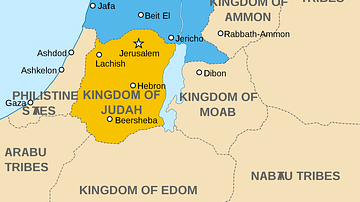
Article
Mesopotamian Effects on Israel During the Iron Age
The Iron Age in the traditional Ancient Near Eastern chronology ranges from somewhere around 1200 BCE to 333 BCE. It begins from the era when it was first thought iron came to be used up to the ascendency of Alexander the Great as the major...
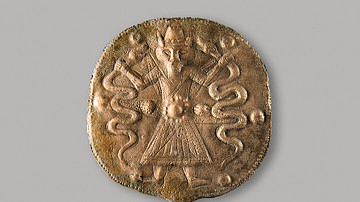
Image
Bronze Hairpin Depicting 'Master of Animals' from Iron Age Zagros
Bronze Hairpin Depicting 'Master of Animals', found in Luristan (central Zagros), c. 950 to c. 650 BCE. National Museum of Iran, Tehran, acc. no. 1459. Photo by Neda Tehrani (Baloot Noghrei) Long bronze hairpins crowned with a large disk...

Image
Mehrauli Iron Pillar
The Iron Pillar now seen at the Qutb Complex, New Delhi, India, was originally erected during the time of King Chandra and bears his inscription in Sanskrit. This king has been identified with Emperor Chandragupta II (c. 375 - 413/14 CE...

Image
Shropshire Iron Bridge
The world's first cast iron bridge, built across the River Severn in Shropshire, England by Abraham Darby III (1750-89). It was completed in 1779 and opened to the public on New Year's Day, 1781. The design had to be a single-span arch to...

Definition
Greek Dark Age
The Greek Dark Age (c. 1200 to c. 800 BCE, overlapping with the Iron Age, c. 1200-550 BCE) is the modern-day term for the period in Greek history following the Bronze Age Collapse when the Mycenaean Civilization fell and the Linear B writing...
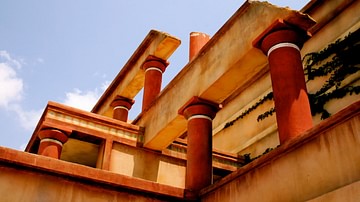
Definition
Bronze Age Aegean
The Bronze Age (c. 3000-1000 BCE) is the period when cultures were either using, producing, or trading bronze. Several cultures flourished around the Aegean Sea during this period: the Minoan civilization on Crete, the Mycenaean civilization...
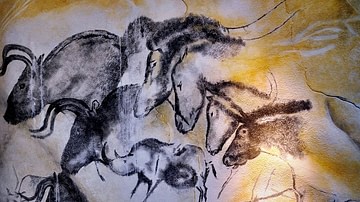
Definition
Stone Age
From the dawn of our species to the present day, stone-made artefacts are the dominant form of material remains that have survived to today concerning human technology. The term “Stone Age” was coined in the late 19th century CE by the Danish...

Article
The people of Iron Age Britain
The people of Iron Age Britain were physically very similar to many modern Europeans and there is no reason to suppose that all Iron Age Britons had the same hair colour, eye colour or skin complexion. Iron Age Britons spoke one or more Celtic...
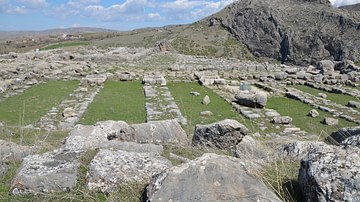
Definition
Bronze Age Collapse
The Bronze Age Collapse (also known as Late Bronze Age Collapse) is a modern-day term referring to the decline and fall of major Mediterranean civilizations during the 13th-12th centuries BCE. The precise cause of the Bronze Age Collapse...

Article
The health of Iron Age Britons
It is likely that many people in Iron Age Britain would have died from diseases as babies or children. Many of those people who survived to be adults rarely lived beyond the ages of 35-45. Only about a third of all adults lived longer. Studies...